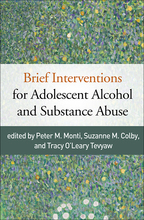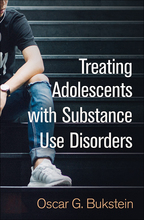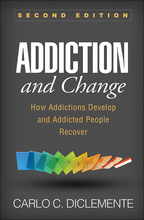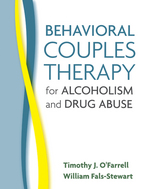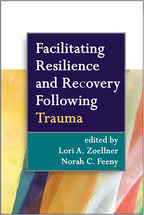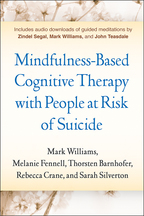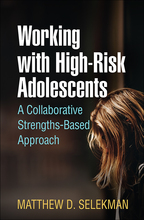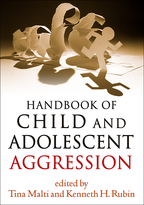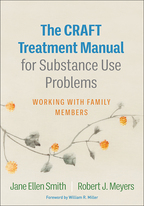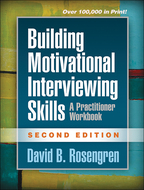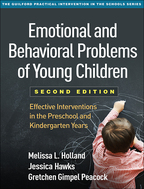Brief Interventions for Adolescent Alcohol and Substance Abuse
Edited by Peter M. Monti, Suzanne M. Colby, and Tracy O'Leary Tevyaw
Hardcovere-bookprint + e-book
Hardcover
orderMay 18, 2018
ISBN 9781462535002
Price: $71.00 458 Pages
Size: 6" x 9"
Sign up for emails on upcoming titles on Addictions (with special discounts)!
“Drawing on authoritative scholars and clinicians from a variety of disciplines, this book provides valuable insight into the application of brief motivational-based strategies for adolescents struggling with alcohol and other substance use problems….The strategies described in this book provide…professionals with valuable tools for working with a population that has historically been deemed difficult and with treatment results that are often less than stellar.”

—Addiction
“This is an excellent, comprehensive, and timely review of brief treatment interventions for both alcohol- and drug-involved youth….This book should be required reading in any social work, psychology, or psychiatry program where there is a focus or coursework provided on alcoholism and substance abuse. The book can also be an invaluable library addition for anyone interested in working in this field.”

—Child and Family Behavior Therapy
“This compelling, authoritative volume provides a strong, cogent, and empirically based case for adopting a public health perspective on substance use disorders that emphasizes harm reduction, pragmatism, and individual responsibility for behavior change. The editors are to be applauded for synthesizing diverse contributions into a readable, accessible volume for professionals and graduate students alike.”

—Scott W. Henggeler, PhD, Department of Psychiatry and Behavioral Sciences (retired), Medical University of South Carolina
“A terrific author lineup, with content that is spot-on! The book presents treatment approaches that reflect an understanding of the important developmental differences between adolescents and adults. Chapters cover the major formats that clinicians actually use with this population, including prevention programs, brief interactions, and medication-assisted therapy. The authors show how to deliver evidence-based interventions with a variety of at-risk groups, including youth in the foster care system, gender-minority youth, and justice-involved youth. A book like this is critical in light of current research findings on the best ways to help adolescent substance users.”

—Scott T. Walters, PhD, Regents Professor, School of Public Health, University of North Texas Health Science Center; member, Motivational Interviewing Network of Trainers (MINT)
“With its unique integration of theory, research, and practice, this book will appeal to clinicians, academicians, and public health officials. It provides up-to-date information on adolescent substance abuse, including advances in neurosciences and opiate addiction. The summary of future directions is comprehensive. Instructors teaching courses in adolescent substance abuse must consider this text, which has a rich blend of research and clinical applications.”

—Sylvie Naar, PhD, Director, Division of Behavioral Sciences, Department of Family Medicine and Public Health Sciences, Wayne State University
“This timely gem of a book, edited and written by leaders in the field, is a much-needed guide to evidence-based brief substance use interventions with youth. Based on leveraging the 'teachable moment' to enhance motivation for change, the chapters provide clear recommendations to guide clinical practice and demonstrate techniques used by master clinicians. Chapters cover the developmental context of youth substance use and address specific challenges in delivering individual and group brief interventions in diverse settings. Informative and useful, this is an essential resource for clinicians and graduate trainees.”

—Tammy A. Chung, PhD, Department of Psychiatry, University of Pittsburgh School of Medicine
—Addiction
“This is an excellent, comprehensive, and timely review of brief treatment interventions for both alcohol- and drug-involved youth….This book should be required reading in any social work, psychology, or psychiatry program where there is a focus or coursework provided on alcoholism and substance abuse. The book can also be an invaluable library addition for anyone interested in working in this field.”
—Child and Family Behavior Therapy
“This compelling, authoritative volume provides a strong, cogent, and empirically based case for adopting a public health perspective on substance use disorders that emphasizes harm reduction, pragmatism, and individual responsibility for behavior change. The editors are to be applauded for synthesizing diverse contributions into a readable, accessible volume for professionals and graduate students alike.”
—Scott W. Henggeler, PhD, Department of Psychiatry and Behavioral Sciences (retired), Medical University of South Carolina
“A terrific author lineup, with content that is spot-on! The book presents treatment approaches that reflect an understanding of the important developmental differences between adolescents and adults. Chapters cover the major formats that clinicians actually use with this population, including prevention programs, brief interactions, and medication-assisted therapy. The authors show how to deliver evidence-based interventions with a variety of at-risk groups, including youth in the foster care system, gender-minority youth, and justice-involved youth. A book like this is critical in light of current research findings on the best ways to help adolescent substance users.”
—Scott T. Walters, PhD, Regents Professor, School of Public Health, University of North Texas Health Science Center; member, Motivational Interviewing Network of Trainers (MINT)
“With its unique integration of theory, research, and practice, this book will appeal to clinicians, academicians, and public health officials. It provides up-to-date information on adolescent substance abuse, including advances in neurosciences and opiate addiction. The summary of future directions is comprehensive. Instructors teaching courses in adolescent substance abuse must consider this text, which has a rich blend of research and clinical applications.”
—Sylvie Naar, PhD, Director, Division of Behavioral Sciences, Department of Family Medicine and Public Health Sciences, Wayne State University
“This timely gem of a book, edited and written by leaders in the field, is a much-needed guide to evidence-based brief substance use interventions with youth. Based on leveraging the 'teachable moment' to enhance motivation for change, the chapters provide clear recommendations to guide clinical practice and demonstrate techniques used by master clinicians. Chapters cover the developmental context of youth substance use and address specific challenges in delivering individual and group brief interventions in diverse settings. Informative and useful, this is an essential resource for clinicians and graduate trainees.”
—Tammy A. Chung, PhD, Department of Psychiatry, University of Pittsburgh School of Medicine

